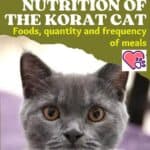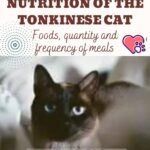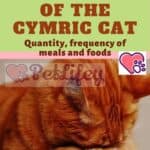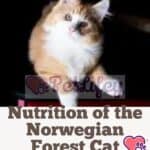
Nutrition of the Donskoy, the secrets of a perfect physical shape thanks to an adequate diet for this wonderful breed of cat.
In today’s article we are going to see specifically, the feeding of the Donskoy, that is the frequency of meals and the quantities necessary for the daily requirement of this particular breed of cat.
The Donskoy has as a distinguishing feature that it is hairless (hairless), this condition affects your nutritional needs, something that many people are not aware of.
What to feed the Donskoy
Each specific breed has different characteristics that can lead to equally different needs.
The Donskoy cat has no apparent hair and this is due to a natural genetic mutation.
A recessive gene is the cause why this breed has only thin fur covering the skin (almost imperceptible to sight and touch).
Therefore, being a very particular breed, if you decide to adopt a Donskoy, it is important to know its needs regarding nutrition.
Having a program to maintain a controlled and disciplined diet allows the Donskoy cat to avoid excess and become an obese cat.
It is therefore important to offer the Donskoy a complete and balanced meal.
In order to offer this combination of factors, many people prefer to give their cats dry food, sold commercially, in specialized stores.
Other owners, on the other hand, prefer to personally prepare homemade recipes for cats.
What matters, whether you choose to feed your cat with an industrial diet or with a do-it-yourself diet, is that animal proteins are present, while the fat must not exceed 10%.
The foods that can be used for any recipes for cats are:
- chicken, turkey, beef;
- salmon, tuna, trout, mackerel;
- fresh fruit and vegetables;
- fermented milk products, probiotics.
Without forgetting how important are foods such as offal, liver and muscles, rich in essential nutrients for the well-being of the animal, including:
- taurine;
- thiamine;
- niacin;
- vitamin B12 for the cat.
Minerals and vitamins are also a good part of the nutritional values of the Donskoy cat:
- minerals: calcium, phosphorus, magnesium, potassium, sodium and chlorine (their deficiency can cause organic dysfunctions) and those that must be in small doses are: manganese, iron, copper, zinc, iodine and selenium (the excess of some it can lead to intoxication with even lethal consequences);
- vitamins: iron, potassium, calcium, magnesium, copper, zinc and selenium, vitamins E, C, D, and K. However, it is necessary to use them appropriately, perhaps by contacting the veterinarian.
Nutrition of the Donskoy: doses and frequency of meals
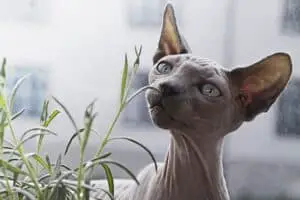
Although the Donskoy lives mostly indoors, they don’t really have a sedentary lifestyle. Indeed it is a skilled jumper and climber.
Thinking that cats all eat the same foods and in the same doses is a big mistake.
In fact, with the same weight as other breeds, the Donskoy, like all naked cat breeds, needs to eat more.
The proportion of food will actually vary according to age, lifestyle and general health.
In any case it is essential to know that more than any other breed, for the Donskoy it is necessary to transform food into heat and energy.
As for the frequency of meals, since age, the degree of activity and health will play a decisive role in the quantity of food that the Donskoy can consume.
Experts recommend dividing them according to the age of the cat, namely:
- from 8 weeks to 6 months: 3 and 4 servings a day from 30 to 40 grams each;
- After 6 months: it is possible to reduce the number of meals to 2 per day from 250 and 450 grams of food each;
- 1 year: one meal a day, it may be appropriate to divide the portion into two in the morning and in the evening of 250 and 450 grams of food each.
Over the years it will be necessary to adapt the diet to the needs of the elderly cat, in order to guarantee him a good state of health, considering that the Donskoy can live up to 15 years.
Furthermore, water is also fundamental in a cat’s life, even if apparently it does not seem to drink much, it is necessary to leave it a fountain with fresh water, always available.

